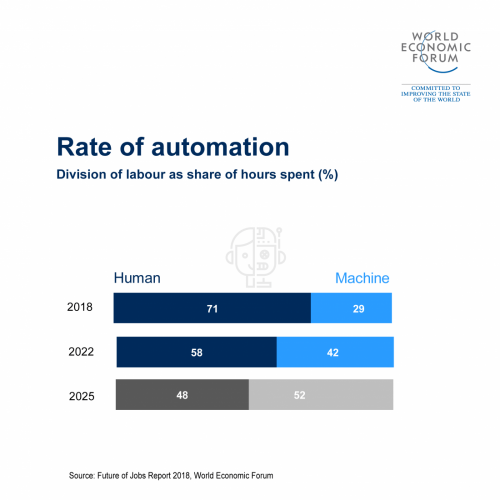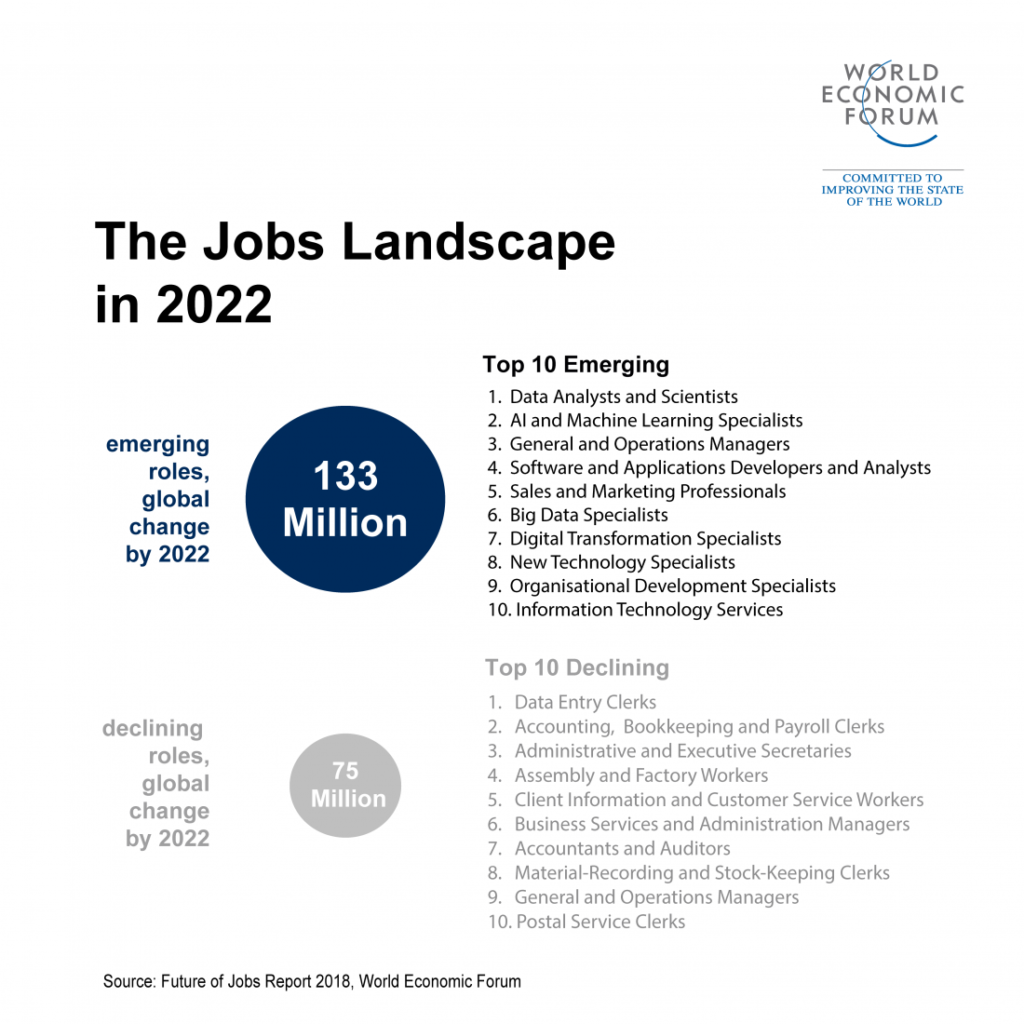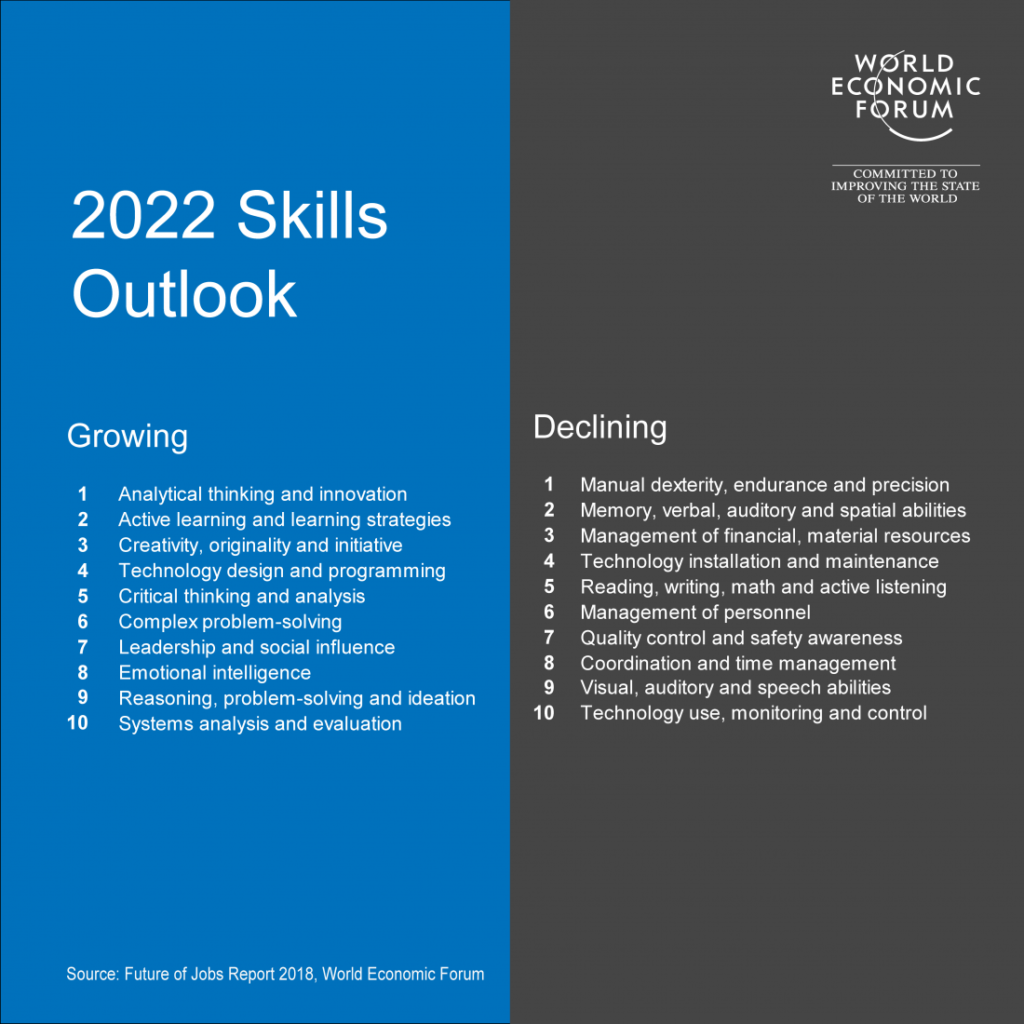The World Economic Forum recently published the 2018 edition of “The Future of Jobs”. Bill Gates once said, “We always overestimate the change that will occur in the next two years and underestimate the change that will occur in the next ten.” That sums up the Future of Jobs, where very little has changed from their 2016 report, yet we all believe that major changes are forthcoming due to technology.
The report identified four major drivers of technological change impacting jobs: ubiquitous high-speed mobile internet, Artificial Intelligence (AI), big data analytics, and cloud technology.
All of these drivers were identified in the report two years ago, which they deemed “the Fourth Industrial Revolution”.
While some jobs may go away to machines and robots, the changes in the coming years will likely be more nuanced. Many jobs will have a combination of technology and “human” tasks, with technology taking on a larger percentage of tasks.
This will require workers to build a set of skills that embraces technology and constant technological change while strengthening the “human” skills that are much harder for machines to replicate.
Note below that the skills that are declining in importance are those that machines can do well. The “human” skills are more in the areas of innovation, creativity, managing others, design, complex problem solving where little is “routinized”. This is where the human brain and energy can make a difference. The skills that are increasingly important are largely unchanged from two years ago:
The technological drives and the skills above are critical to the jobs that will be increasingly in demand as well:

So what does all this mean for those of us in the workforce today? While change may be slower than we think, it is bearing down.
It’s time to ensure that you are building the skills to make yourself successful in the future world of work. Here are 5 tips:
- The World Economic Forum states that these changes will require an extra 101 days of learning over the next 5 years! That’s nearly one-third of a year! Training on the new technology within your industry is critical, and that can often be done with tutorials and webinars. Training for some of the soft skills can be helpful, though is sometimes not as effective.
- For the “Softer Skills” development, be very thoughtful and planful about the projects, assignments, roles, and jobs you take. Ask yourself if they provide you with the opportunity to develop creativity, innovativeness, emotional intelligence, problem-solving, using big data, etc.
- Also for the “Soft Skills” consider hiring an executive coach who can work with you to build some of these skills in a highly personalized development program.
- If your current job is on the “declining” path, you must find the time to re-invest in yourself to build a new skill set. There are programs and training to get into big data and become software applications developer. You will need to get prepared over the next half decade to move into a new career.
- The most important skill might be that of learning – the ability to learn continuously and apply in a work situation. Do you know your learning style? Do you learn best by hearing it, by reading it, by doing it yourself, by seeing someone else model it for you? Probably some combination, but it will be important for you to know your learning style, so you can maximize learning opportunities.
After reviewing these charts, if you’d like to build a plan to start on your path to succeeding in the future world of work, contact Joni Lindquist at jlindquist@AspyreWealth.com. Aspyre Wealth Partners helps clients Master What’s Next®, no matter what phase of life they are in.

